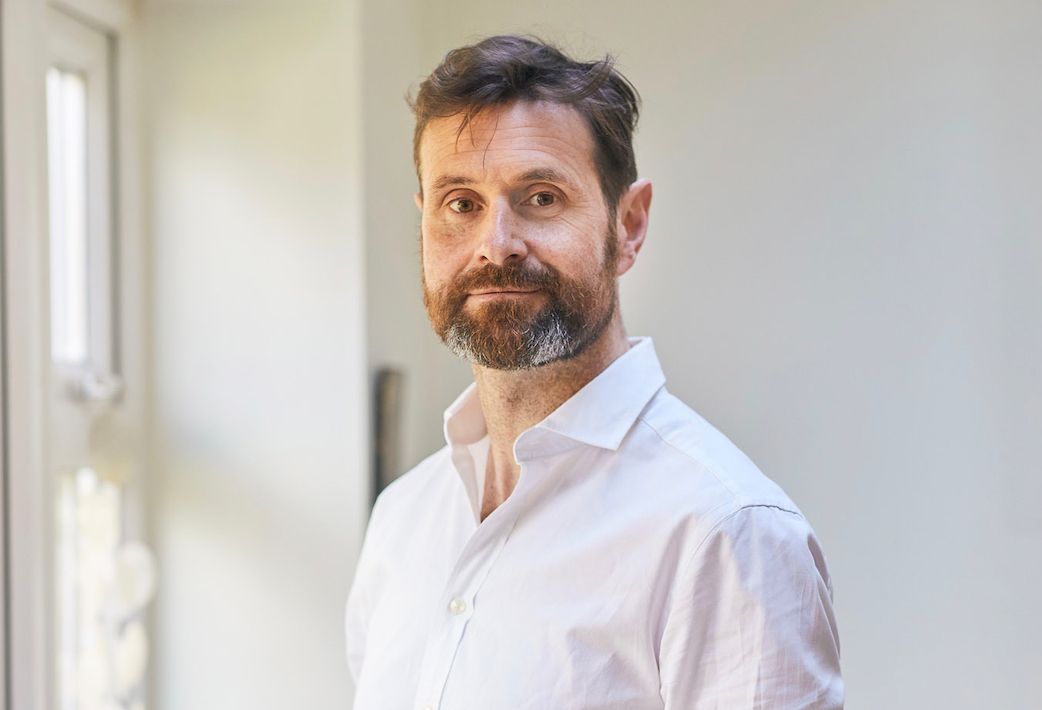New Generation Wines is co-owned by South African wine investment business Vinimark, which gives its customers direct access to wines from its member producers including The Chocolate Block, Reyneke and Boekenhoutskloof and Krone, says managing director, James McKenna.
Having the chance to visit, meet and interview leading figures from a wide range of major suppliers and distributors in the UK gives you an interesting insight into what makes them tick and gives them their particular edge.
Now every supplier will claim the same thing. That it works hand in hand with each of its wineries to make sure their wines are best represented in the market. But claims of mutually beneficial partnerships can feel a bit threadbare when it comes to parting ways with a particular producer who privately complain of not being loved enough in that very same company.
It’s a delicate and commercial sensitive balancing act to get right. Suppliers by their very nature want to take on more producers to give them a better chance of getting listings with key customers. But the more producers you take on the harder it gets to give them all the love and care they deserve, and most of all want.
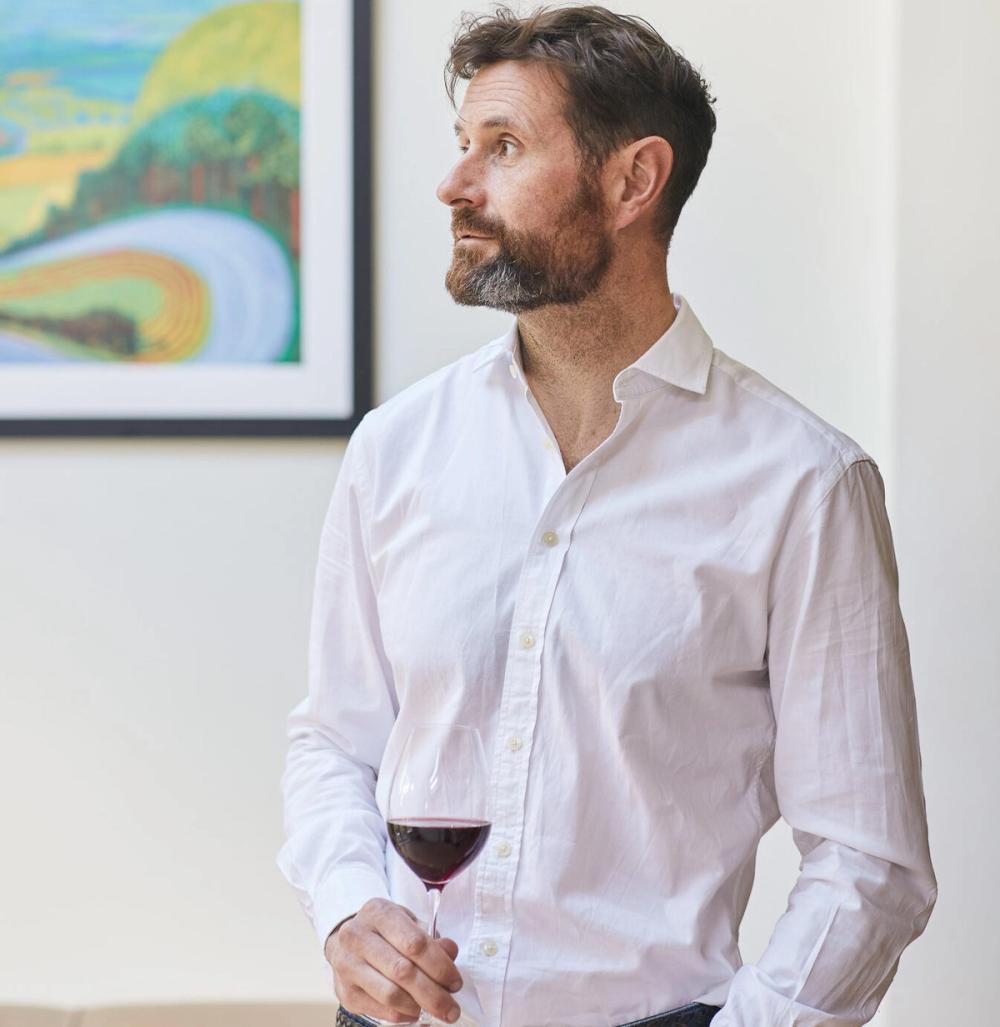
James McKenna says New Generation Wines has a sharp focus on working with its producer partners in all the relevant channels of the UK wine market
James McKenna is well placed to run a business that claims to have found the sweet spot for producers, brand owners, distributors to live in. A way of working that actually puts its customers at the heart of what it is doing and works back from there.
South African drive
To really understand New Generation Wines and how it works you have to look at it through the ambitions and drive of its South African producer partners that through Vinimark, since 2010, owns half the business.
Quite simply the business would not have “the scale and reach it has without its South African brands,” says McKenna.
A strategic approach that is building and gaining momentum every year, culminating with New Generation Wines being named South African Specialist of the Year at this year’s International Wine Challenge – the first time it has entered the competition.
An award that clearly means a lot to the business. “It’s brilliant for the whole team and all our partners,” says McKenna. “It’s also recognition of all the work we are doing to bring South African brands to the length and breadth of the UK wine market, from the major supermarkets, to regional wholesalers, pub chains and the top restaurants. We love connecting these South African brands to where they are best suited.”
He admits New Generation Wines’ strong South African portfolio does, in many ways, buck the market which, according to Nielsen figures would imply the South African category is pretty “unappealing” dominated by high volume, low priced brands.
“We have shown that with the right brands and investment building success with South African brands is achievable,” he adds. “Can any country really challenge South African at the premium end?”
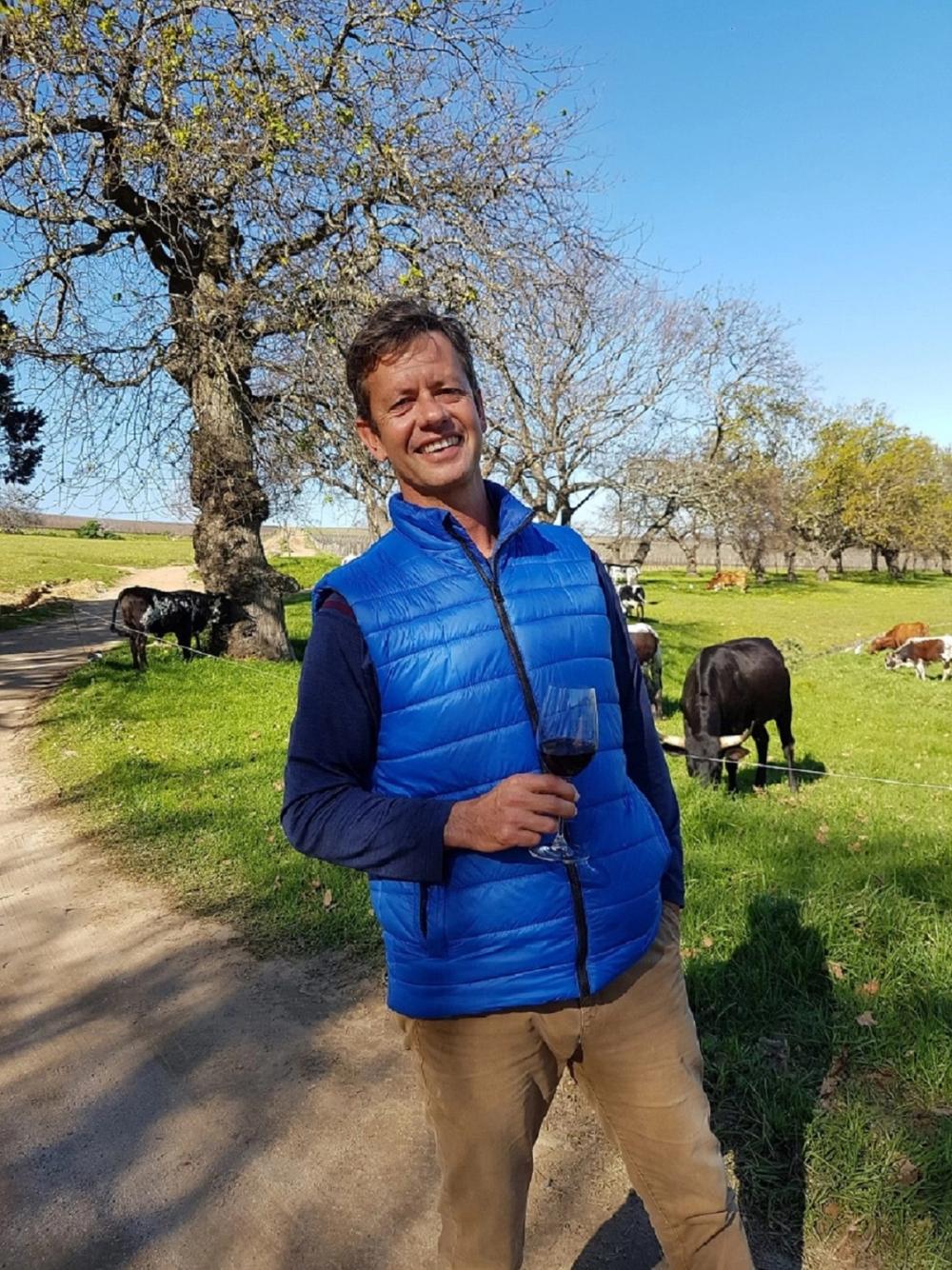
Johan Reyneke of Reyneke Wines is one of the respected South African producers In New Generation’s portfolio
New Generation Wines is also well blessed with South African brands that are more than the sum of their parts. A tight, strategically driven set of brands that each have a very distinctive role to play. How about this for a line-up: The Chocolate Block; Porcupine Ridge; Reyneke; Krone; Patina; Boekenhoutskloof; and Porseleinberg.
“We are completely focused on every single one of the brands in our range. Which is why it is such a manageable list. The Chocolate Block, for example, is a brand that is now accepted luxury. It is so reliable every year. But that also shows the work that goes into producing every glass. “Quality is assured and the brand proposition is impeccable”
Producer partnerships
Crucially, stresses McKenna, it has built the business not on what you might call a traditional producer and importer relationship where the supplier will dictate how and where their wines are sold, and they may or may not get to know what the full customer list is.
Instead each producer has its own strategy, that takes the wine from the cellar, into an agreed channel of the UK market and then into and through the sales team, working directly with customers to help push and promote the wines in their stores and venues. Which is why, stresses McKenna, it can only have a finite number of producers in its range.
“As a managing director it is highly tempting to work with more producers. All UK importers have pressure to grow and how you provide a quick fix is by stacking the book. We don’t. We say no to producers every week who want to work with us. We have to keep the point of our arrow sharp and I believe that this focus makes us more attractive to ambitious producers.”
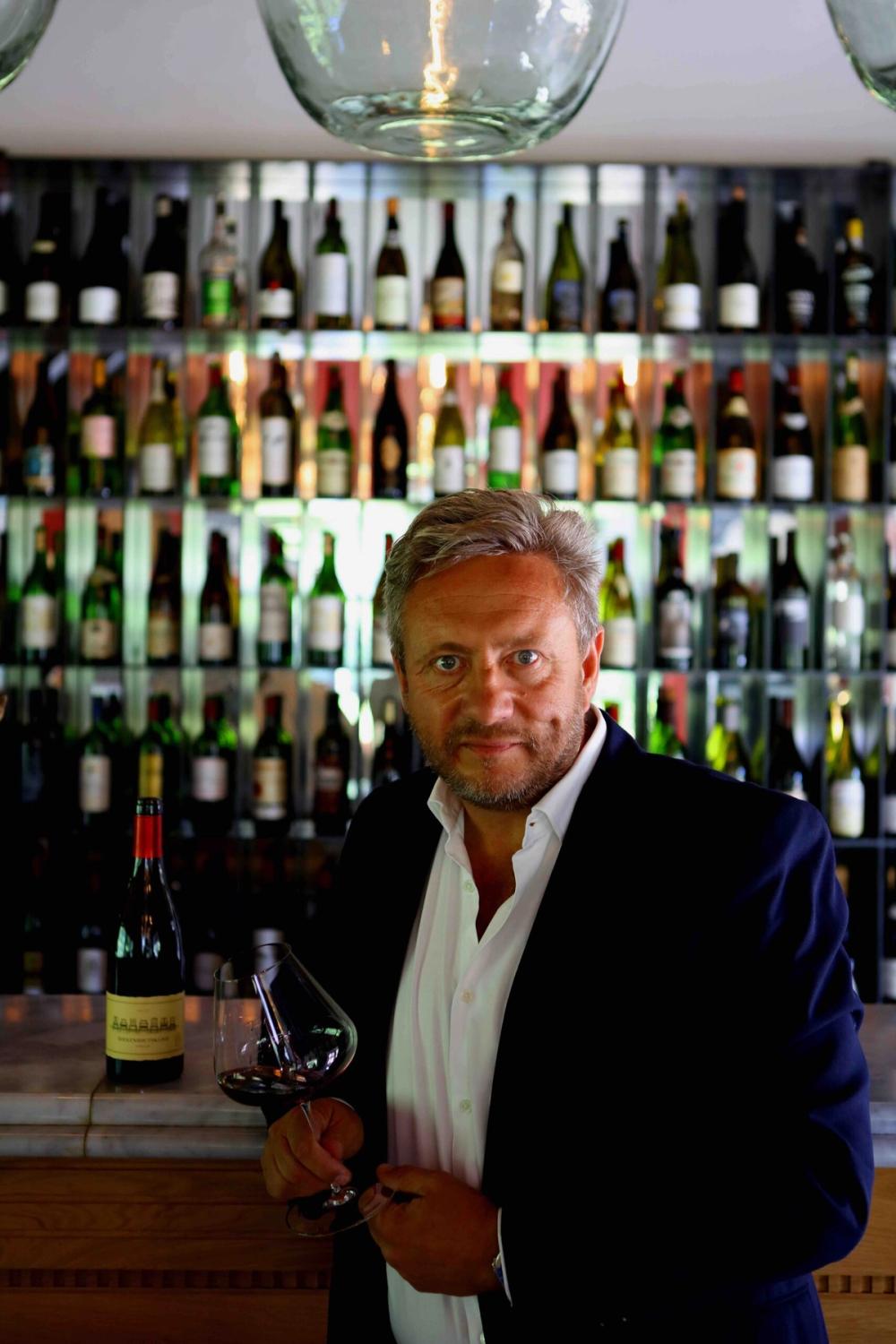
Mark Kent has been a key part of New Generation Wines’ success with his The Chocolate Block brand
The key is to have brands that do so much more and mean so much more to their customers than “just competing on price – we don’t want to be in that zero end game. And the outlook isn’t great for those that have low prices as they’re USP.”
Instead the focus at New Generation wines, he claims, is “what can we do with our partners to build their brands” in all channels of the UK market.
“We try and look at the UK market from the point of view of our producers. We interpret the market for them, finding the meeting point between what they do and what the UK market can offer. That’s what gives us credibility to speak with authority about what their points of difference are.”
He believes the fact New Generation has strong relationships with most of the major supermarket groups, but also with the big pub chains, through to specialist wine merchants and fine dining venues like the Fat Duck and Clare Smyth gives it a clear competitive edge.Plus the fact it can also work on exclusive labels for the likes of Majestic and the Wine Society.
“We have a team of talented people who specialise in those channels to support our producers,” he adds.
Producers’ eyes
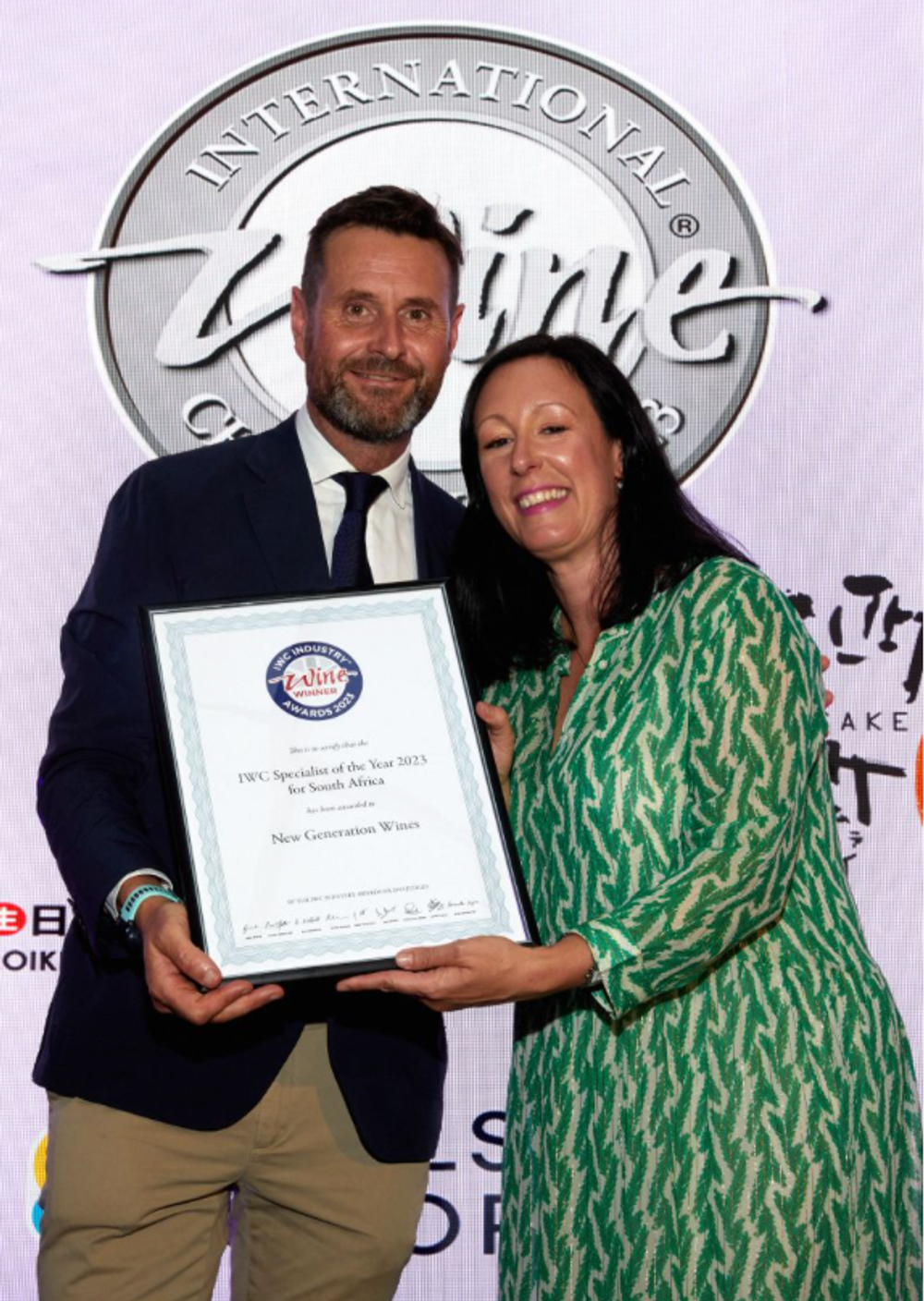
Winning the South African Specialist of the Year at this year’s International Wine Challenge was a big boost for the New Generation Wines’ team and its producer partners
McKenna is in a good position to truly understand what producers are ultimately looking for from a UK partner as he spent a large part of his career working on that side of the fence. For having done his initial wine training at the good ship Majestic, and tuned his palate working at on wine events at Wine Magazine, he spent 11 years in a range of national account and commercial roles across Europe at Cordorniu, before moving to a sales director role at Mentzendorff, another producer owned and driven wine supplier business.
It was at Codorniu, though, where he was able to really immerse himself into the culture of a major wine producer. Based out of Barcelona for five years he was able to use his university language degree to head up its sales across Europe at the height of the so-called Cava wars and the phenomenal rise of Prosecco around 2008 to 2013.
“It was a great opportunity for me and gave me great insights into how a producer of that size works. You are working for a multi-generation producer and it was really my academy into the wine trade. My north star if you like. It was truly fascinating,” he explains.
He was then able to hone that experience during his four years at Mentzendorff and the chance to work with some of the trade’s most iconic and influential brands – like Bollinger. “They were very distinct brands that occupied very different territories in the market.”
From his position now as managing director at New Generation Wines he says he was able to “learn a lot from the team at Mentzendorff”.
McKenna says when he was first approached by James Booth, co-founder of New Generation Wines, about whether he would like to join the business he could quickly see the “parallels with Mentzendorff and what it is looking to do with premium brands”.
The fact is was half owned by such an impressive line up of South African producers and brands “and how ambitious they were for the UK market” made the move an easy one to make.
Listening to the trade
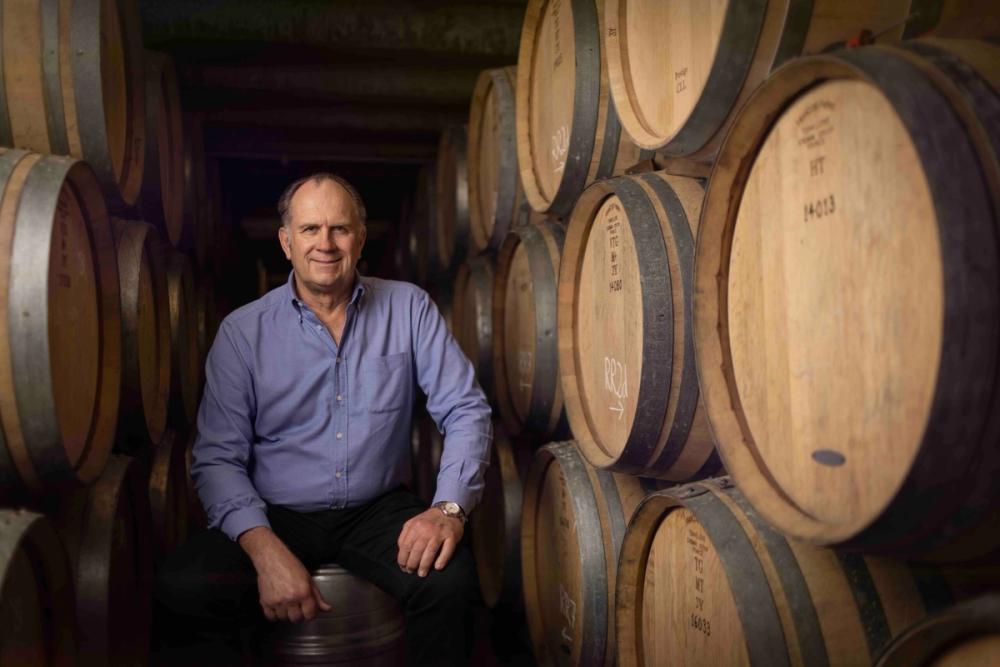
New Generation Wines has built close relationships with its producers around the world like Michael Brajkovich at Kumeu River in New Zealand to bring older vintages to the premium UK wine market at competitive prices
To be a successful agency means being able to equally listen and work with your customers as it is keeping your producer partners happy. The two, though, should go hand in hand, argues McKenna.
At the high end, for example, it has listened and spoken to key sommelier customers who say they are not just interested in the latest vintages from its major producers, but would love to get their hands on old vintages and limited editions they can sell and bring some theatre to their restaurants.
“So we have listened and now looked to bring in older vintages that we then sell to them as the same price as the new releases,” he explains. “We listen to the trade and what buyers want.”
It is working, for example, particularly well with older vintages and library parcels of wines of Kumeu River from New Zealand, which helps elevate its profile with key high end restaurant accounts. “It is also motivating for the sales team to be able to go out and show these wines,” he says. “We have to be thinking about what is going to excite buyers and sommeliers, particularly in the London on-trade. It gives them something else to offer.”
Where next?
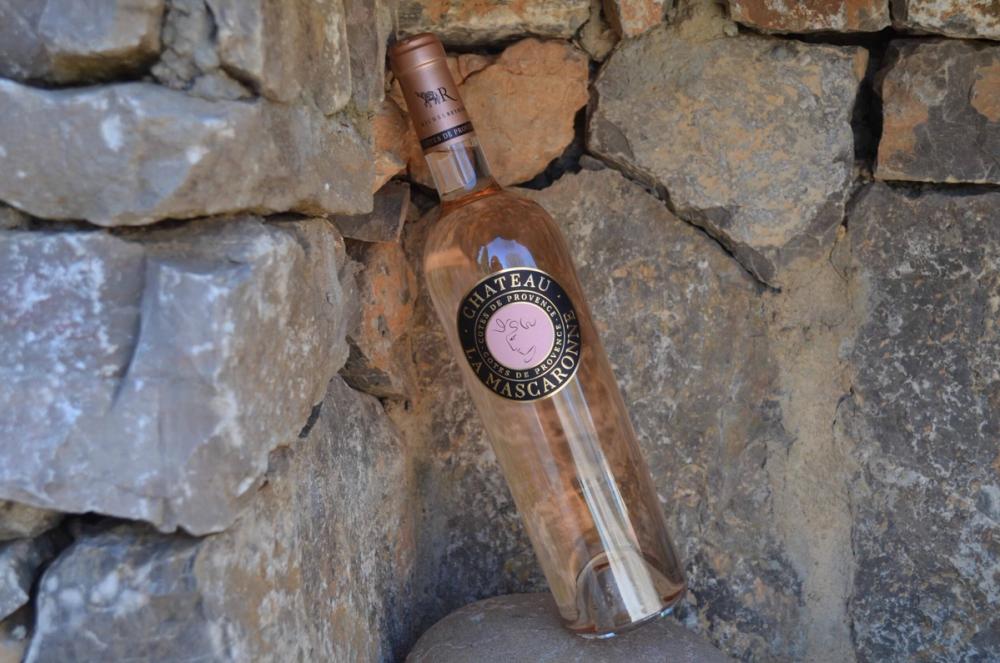
New Generation Wines is looking where it can build its portfolio but will only take on the right producer at the right time
Clearly New Generation Wines has South Africa pretty much covered, and has also got a very strong premium French offering (including Chateau La Mascaronne, Cos d’Estournel, Champagne Henri Giraud) as well as New Zealand (Pegasus Bay, Kumeu River, Auntsfield, Valli), but there are some holes to fill. Most noticeably Australia.
“We want to replicate what we have in South Africa and New Zealand in Australia,” claims McKenna. “But we want to get it right. We are currently talking to a lot of people, and there are also a lot of Australian producers that want to come to the UK, but we are taking our time and working out who we want to work with. We are also a small team of 18 people and got to make the most of what are limited resources.”
It means biding its time until it can find the right producers that have the reach and breadth of portfolio that makes them appealing to work in all the major channels of the market. “We need a producer with a broad vision that can cover all channels,” explains McKenna. “The quality of the wine at all levels has to be the best.”
Challenging times
Despite the many issues facing the UK wine industry – the most recent being the arrival of the potentially damaging and uncompetitive new duty reforms – McKenna is confident the UK still remains a key market for premium producers to be in.
“The UK is the Olympics of the wine industry. It has the best buyers, the best operators, the best journalists. So the quality has to be there to succeed here.”
It is also one of the few countries that has a truly global wine offer with influences and opportunities for producers anywhere in the world. Where wine education is seen as a real badge of honour within the trade and outside.
Market conditions, though, are currently tough and the combination of high inflation and low economic growth is not ideal for those operating in premium wine.
“The duty changes are going to come as a shock to consumers and the trade will suffer, but again that is when strong brands with a clear message that are imbedded in the market and have a clear positioning are in the best position. We need to make sure we rally around those pillars of our portfolio that are more price resistant,” he explains. “We are not looking to chase volume.”
Brands that have “fixed price points that are a core part of the brand’s identity are going to have difficulty,” with the new duty reforms, says McKenna.
It means the conversation it is having with potential producers is not about price, but what they can offer the UK wine market that it currently does not have.
Which is why the experience in the New Generation team is crucial, says McKenna, pointing to the leadership of co-founder, James Booth, right through the sales team and marketing and brand development headed up by Valerie Lewis, who herself has a strong background working with producers having spent many years at Enotria&Coe and Negociants UK. A team spread across London and across the country with regional managers covering wholesalers and local independents.
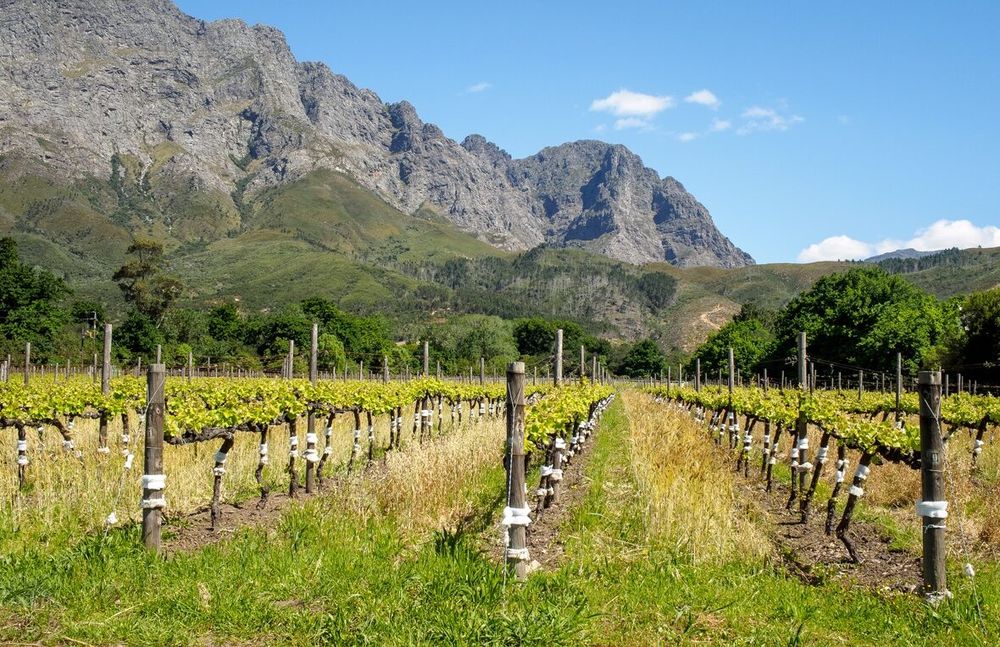
South Africa’s Vinimark, that owns half of New Generation Wines, has been able to grow and develop its business and those of its South African producers – like here at Boekenhoutskloof – thanks to its strong ties to the UK
All deliveries and duty paid stock is handled by LCB, which is well placed to handle the majority of its sales in and around London.
Whilst its sales may predominantly be around the capital, New Generation Wines works hard with its producers to make sure they visit and get to experience life and their customers around the country. Johan Reyneke, for example, was able to do a number of tastings across Yorkshire on hisrecent visit to the country.
“It’s very good for business and also very much part of what we want to do,” says McKenna.
Management style
McKenna’s likes to think his personal management style is to work with and engage all members of staff with the same goals, drive and passion. He admits that can be hard with a small team based around the country – he himself splits his time between the head office in south London and his family home in York.
He admits he has taken a lot from the management approach at Mentzendorff and from the other businesses he has worked at. “I really respect Mentzenforff, for example, for how they manage iconic brands.”
Which is why so much of what New Generation is about comes back to its brands and how they can help build them. Instead of doing a major portfolio tasting, it now prefers to focus in on a particular producer or brand and centre a tasting around them “so that we can control the brand building messages we want to say”.
“We are finding we can do smaller, focused events far better that is also far more compelling for people to come to than a big generic tasting. That is the way we can get to the key people in the industry. Ultimately, this way of working offers a more intimate insight into the producer, anchoring to people and place in a more resonant way.”
Small and focused pretty much sums up the New Generation Wines way of doing things and why it is attracting interest and demand from producers and customers as a result.
- New Generation Wine is a commercial partner of The Buyer. You can find out more about the business here.
